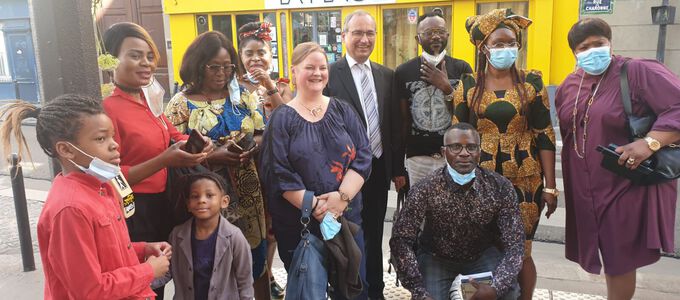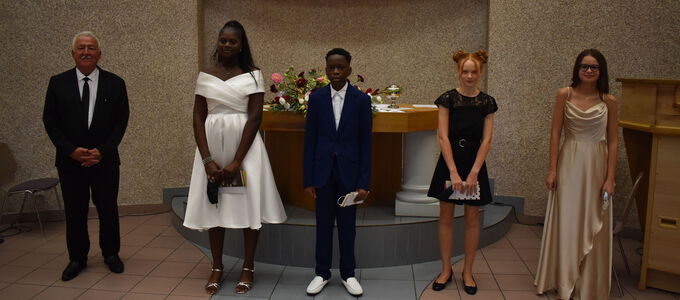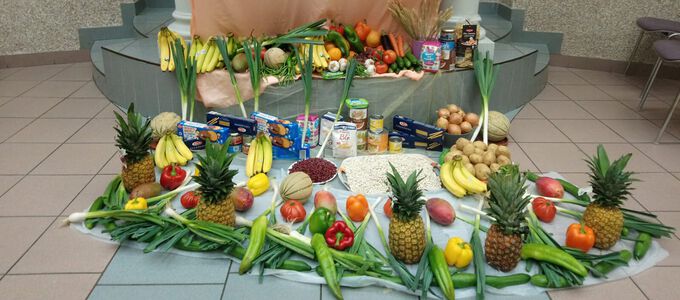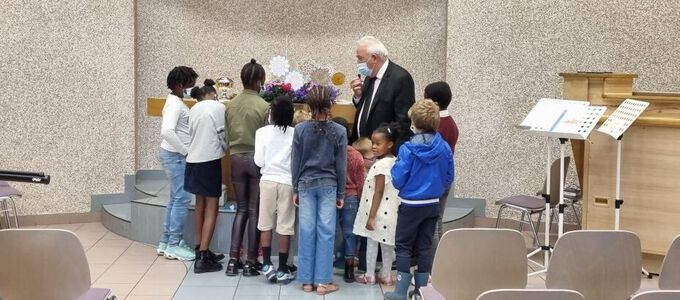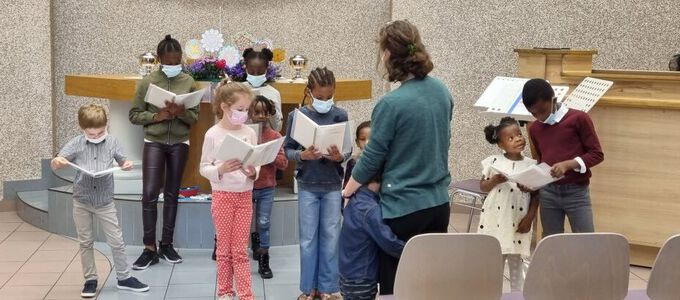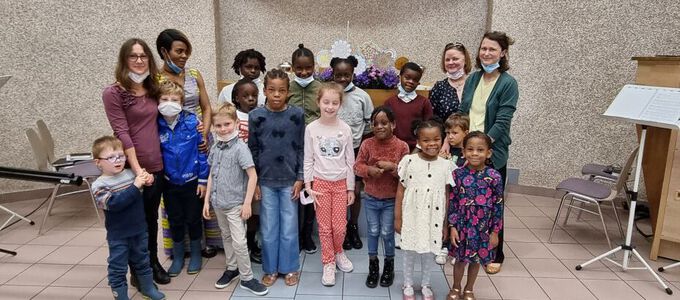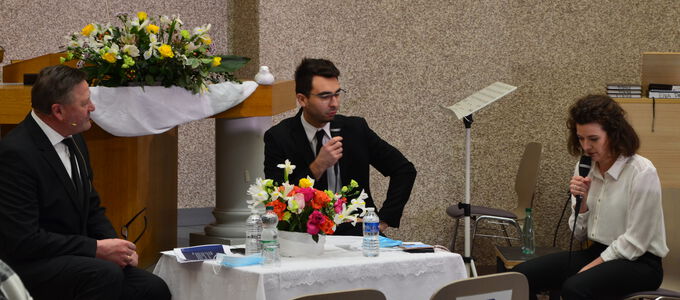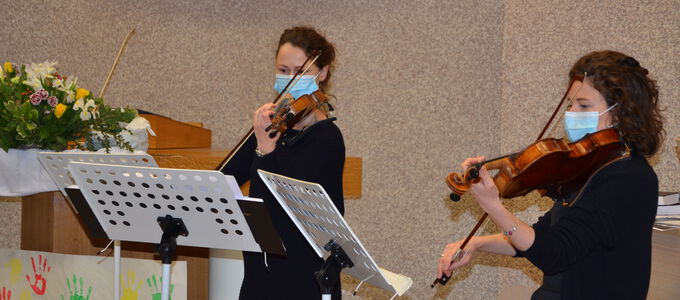
Around 100 members in Paris, France are looking forward to the visit of the Chief Apostle on 17 October. The special thing about this congregation: they come from many different countries but are nevertheless connected by the same faith.
The beginnings of the congregation of Paris go back to the early 1930s. Since 1966, the divine services have taken place at the same address, namely 70 rue de Charonne or 60 rue Trousseau—the entrance is located exactly at the intersection of these two streets. At the very beginning, the building served as a cinema, which was first renovated and then finally torn down. A residential building was constructed in its place, the ground floor of which houses the church with its modern, hospitable, oval hall.
An international congregation
At a glance it is evident that many members of the congregation are anything but typically French, because they are originally from Angola, Cameroon, the Democratic Republic of the Congo, the Republic of Congo, Ecuador, Germany, Haiti, the Ivory Coast, Russia, and Turkey… And naturally, there are also a few members from France in the mix.
The rector of the congregation is Vianney Fullhardt, a true Frenchman. He places great value on the international character of the congregation. His feeling is that this diversity promotes tolerance and understanding, and that it enriches the congregation tremendously. Many members of the congregation likewise find that it enhances faith life and congregational life when there are so many views and so many ways to practise and express faith in the same congregation. “Everyone participates in all the work that needs to be done in the congregation, be it cleaning the church, decorating the flowers, singing along in—or leading—the choir, or teaching the children. The colour of skin is irrelevant,” says Sonia, a sister with two nationalities herself: her father is French and her mother is German.
A musical congregation
Before the pandemic, it was a given for the members to sing together after services. This tradition is one that the members of the Paris congregation have inherited from their Congolese brethren. “It’s our way of saying goodbye to one another after the divine service,” explains priest and former rector Jeef Emanonge, who is from Kinshasa, Democratic Republic of the Congo.
The COVID-19 pandemic forced the Parisians to become creative. So it was that small ensembles comprised of organ, piano, and violins began to form. And thanks to the more recent relaxation of health protocols, it has also been possible to have small choirs perform. Now there are even some flutes helping along to provide the musical framework for the divine services.
A lively congregation
Paris is a young, lively community. The youth grows every year with young members from many countries who are here to complete their studies or pursue their internship. They join the Paris youth group for the duration of their stay, and often even longer (that’s why there is social media, after all).
The congregation had long been looking forward to the visit of the Chief Apostle, who had originally planned to come to Paris on 04 October 2020. How great was their disappointment when the visit had to be cancelled because of the pandemic! “I do not yet know how this will be possible, but I promise you that I will come to Paris in 2021,” said the Church leader at the altar in Strasbourg, where he was obliged to conduct the divine service instead. He will finally be able to make good on this promise on 17 October. The musical congregation has been preparing for the service for months. “Unfortunately we are not allowed to play in the rented hall, but some musicians will perform, and the children will sing one song when the Apostles arrive,” relates Sonia. “We rehearsed quite a lot, both at home and in church.”
A united congregation
Everyone, irrespective of nationality or skin colour, sits in church on Sundays in Paris—or connected to the congregation online in front of their television or laptop during the pandemic—and together they hear the one word of God that comes from the altar and unites them all. “I feel very comfortable in the Paris congregation because our members have made a strength out of their differences,” relates Viannney Fullhardt, the rector of the international congregation. “While the members come from different cultures, they put these into the service of the congregation. Our congregation is often cited as an example of successful integration within the Christian community, because everyone is looking in the same direction, namely the return of Christ, and there is a very strong feeling of solidarity among the members.”







